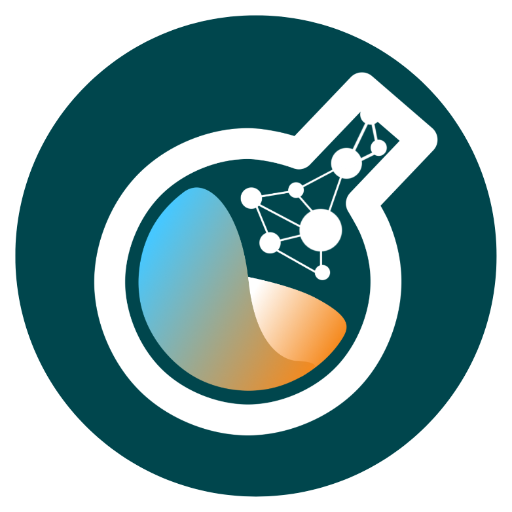ResearchGPT-AI Research Assistant
AI-powered Research Simplified
Does creatine improve cognition?
Can intergroup contact reduce prejudice?
Write the introduction of a paper on the effects of climate change on GDP
Draft a blog on science-backed benefits of mindfulness
Related Tools
Load More
ResearchGPT
Your go-to AI research assistant, ready to tackle the future! Type "list all" to see all features.

Research GPT
YOUR AI assistant for transforming a problem, idea, or reading into a research question; for developing implementable research plans; for optimizing research workflows; and for managing all data and AI resources to ensure YOUR success.

ScholarGPT
I answer your research questions.

GPT Academic Paper (Experimental)
Writes an academic paper from a dataset

Research GPT
Your go-to source for well-researched information!
Dimensions Research GPT
This scholar GPT brings Dimensions’ scientific evidence and ChatGPT's powerful generative AI capabilities together - get summaries, insights and citations for research topics evidenced in academic papers in seconds. Terms apply: https://www.dimensions.ai/
20.0 / 5 (200 votes)
Overview of ResearchGPT
ResearchGPT is a specialized AI assistant designed to help users navigate and synthesize scientific research. Its primary function is to provide users with detailed, evidence-based answers to research-related questions. By leveraging access to a broad range of scientific papers, ResearchGPT aims to simplify the process of finding relevant research, extracting key insights, and presenting them in a user-friendly format. For instance, if a user asks about the impact of sleep on cognitive function, ResearchGPT can retrieve and summarize findings from multiple studies, offering a comprehensive view of current knowledge on the topic.

Core Functions of ResearchGPT
Research Query Answering
Example
A user asks, 'Does intermittent fasting improve metabolic health?'
Scenario
ResearchGPT searches scientific databases for studies related to intermittent fasting and its effects on metabolism. It then provides a summary of the findings, highlighting both positive and negative outcomes from various studies, and links to the relevant papers for further reading.
Evidence Synthesis
Example
A user requests a synthesis of research on 'the effectiveness of mindfulness-based stress reduction (MBSR) in reducing anxiety.'
Scenario
ResearchGPT aggregates data from numerous studies on MBSR and anxiety. It identifies common conclusions, variations in outcomes, and gaps in the research, presenting a well-rounded overview that includes citations from each referenced study.
Drafting Academic Content
Example
A user needs a section for a literature review on 'recent advancements in gene editing technology.'
Scenario
ResearchGPT compiles and summarizes the latest papers on gene editing, including CRISPR advancements, off-target effects, and ethical considerations. It drafts a structured section for the literature review, complete with citations and links to the sources.
Target Audience for ResearchGPT
Researchers and Academics
Researchers and academics benefit from ResearchGPT's ability to quickly locate and summarize relevant studies, saving time and enhancing the quality of literature reviews, grant proposals, and academic papers.
Students and Educators
Students can use ResearchGPT for writing essays, completing assignments, and preparing for exams by accessing reliable summaries of complex research topics. Educators can utilize it to prepare teaching materials and stay updated on recent developments in their field.

How to Use ResearchGPT
1
Visit aichatonline.org for a free trial without login, also no need for ChatGPT Plus.
2
Enter your research query using technical language for more precise results. For example, use 'Does cold temperature exposure increase the risk of illness or infection?' instead of 'Does being cold make you sick?'
3
Review the summarized evidence and citations provided by ResearchGPT. Each response will include links to detailed research papers for further reading.
4
Utilize the consolidated evidence synthesis to gather insights from multiple studies, helping you form a well-rounded understanding of the topic.
5
Apply tips for optimal experience, such as specifying the required format for citations and clarifying whether you need a more detailed or simplified explanation.
Try other advanced and practical GPTs
Samurai ⛩ AI summary
Effortlessly summarize content with AI precision.

ScholarAI
AI-Powered Tool for Effortless Research

GADS Search campaign from landing page
AI-Powered Campaigns from Your Landing Pages

PromptDesgnr
AI-Powered Prompts from Your Images

Storybook Vision
AI-Powered Pixar Style Illustrations

WebGPT🤖
AI-powered assistant for complex tasks

Video Magician - Edit, convert, cut the video
AI-Powered Video Editing and Conversion
The Social Ads Compliance Reviewer
AI-powered compliance checks for social ads.

Fractional Talent Finder
AI-powered talent finder for projects

Pepegen
AI-powered cartoon creation, instantly.

PPT Expert
AI-generated outlines for flawless presentations

MidJourne y Prompt Generator
AI-powered image prompts for creativity.

- Content Creation
- Academic Research
- Market Analysis
- Technical Writing
- Literature Review
Q&A about ResearchGPT
What is ResearchGPT?
ResearchGPT is an AI-powered tool designed to assist users in conducting research by providing detailed, evidence-based answers and citations from scientific papers.
How can ResearchGPT assist in academic writing?
ResearchGPT helps in academic writing by providing summarized evidence from multiple studies, offering citation-ready references, and assisting in drafting content sections with accurate, research-backed information.
Can ResearchGPT be used for non-academic research?
Yes, ResearchGPT can be used for various types of research, including market research, technical reports, and general knowledge inquiries, by offering comprehensive answers backed by scientific evidence.
How does ResearchGPT ensure the accuracy of the information provided?
ResearchGPT sources information from peer-reviewed scientific papers and uses evidence synthesis to consolidate findings from multiple studies, ensuring accuracy and reliability.
What are some common use cases for ResearchGPT?
Common use cases include literature reviews, drafting research proposals, writing technical articles, preparing for presentations, and conducting market research.